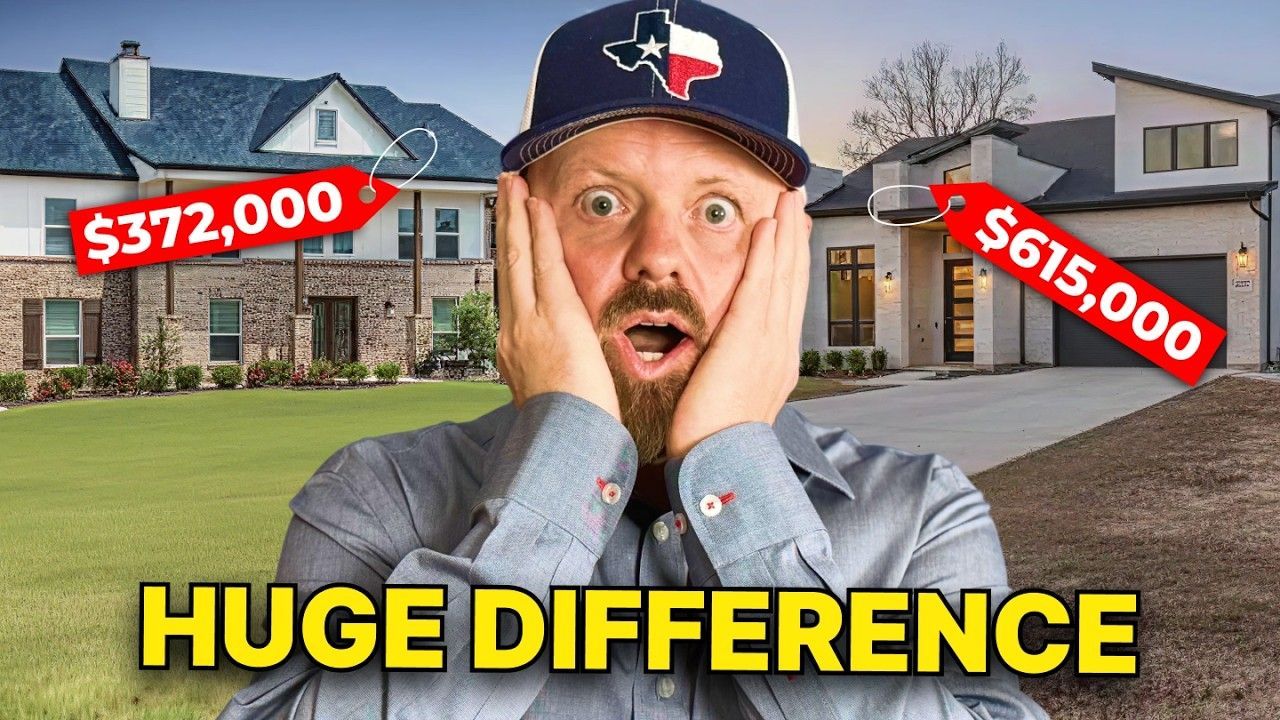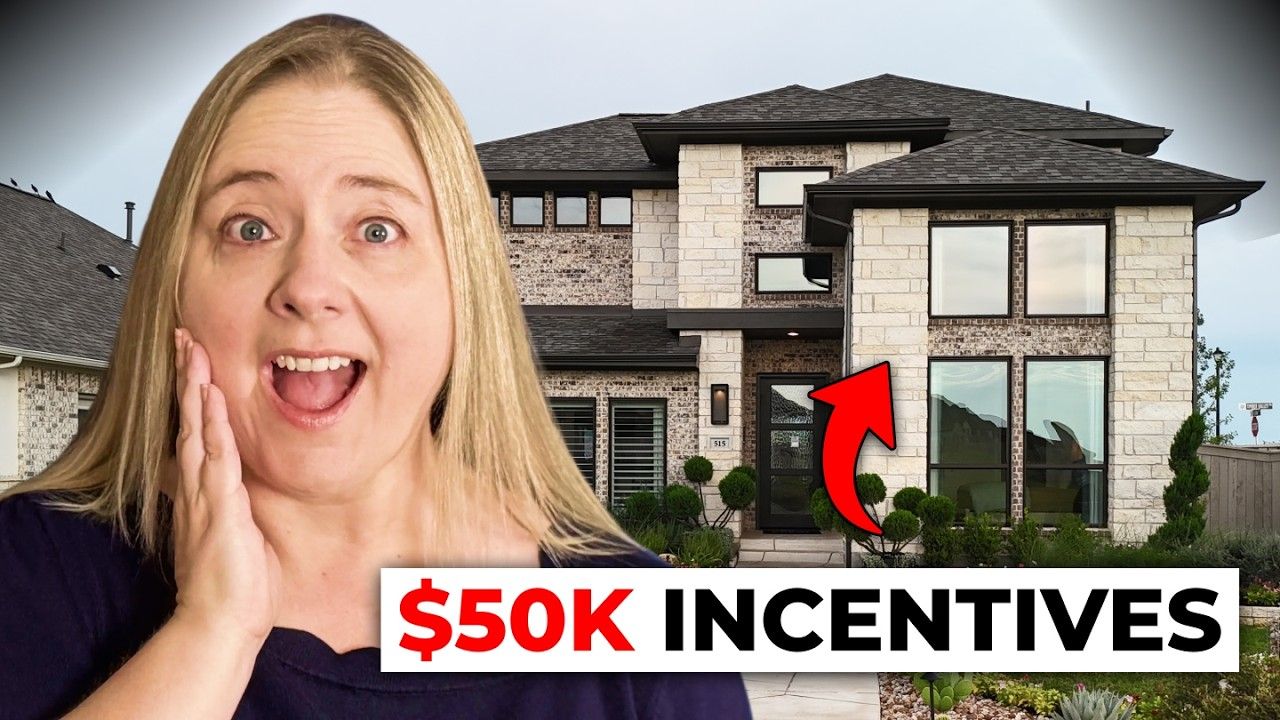Austin Home Buying Stress (What No One Tells You)
Over the years we've helped countless families move to Austin and its surrounding suburbs, and one thing keeps coming up again and again: buying a home should feel exciting, but for most people it feels like running an emotional marathon. In this post I break down the hidden psychology behind home buying stress in the Austin suburbs, explain why those feelings are normal, and share practical strategies we use every day to help buyers move forward with confidence, patience, and positivity.
Table of Contents
- Why buying a home feels like an emotional marathon
- Six common pressures every Austin buyer faces
- FOMO and the Austin examples
- Naming your fear: Stoic wisdom to tame stress
- The discount trap: Why paying less in fees can cost you more
- Emotional attachment: fall in love with clarity, not a photo
- Team strengths: your agent’s network matters more than you think
- Long-term strategy: think 5–10 years, not 5 weeks
- The unplug strategy: practical ways to reduce stress
- Practical checklist: buy with confidence, patience, and positivity
- Case studies: common Austin suburbs situations
- Common mistakes to avoid
- FAQ — Your most common questions answered
- Final thoughts — The Wilson way: calm, clear, confident
Why buying a home feels like an emotional marathon
When people tell me they’re stressed about buying a home, they almost always mean more than finances. They mean sleepless nights, second-guessing, and the constant worry that if they wait a day, the “perfect” house will be gone — or that they’ll sign on something they'll regret for years.
That emotional load comes from a few sources: high stakes (it’s often the biggest financial decision you’ll make), complex information (mortgage rates, taxes, HOA rules, builder incentives), and social pressure (friends, family, and neighbors weighing in). On top of that, the Austin suburbs market moves fast in places and can feel unpredictable.
It’s normal to feel fear, stress, and regret. The difference between a chaotic experience and a calm one is how you manage those emotions. I want to give you a structure — a set of simple mental tools and practical behaviors — that turn fear into clarity and momentum.
Six common pressures every Austin buyer faces
Research and our experience in the Austin market show buyers are usually dealing with six psychological pressures at once:
- FOMO (Fear of Missing Out) — The feeling that if you don’t move fast you’ll lose a home or price advantage.
- Decision fatigue — Too many choices or variables make it hard to think clearly.
- Regret — Worrying you’ll look back and realize you made the wrong call.
- Emotional attachment — Falling in love with a house before checking the practical details.
- Social status — Worry about what the purchase says to others.
- Outside opinions — Family, friends, or online commenters who complicate the decision.
If you recognize any of these feelings, you’re not broken — you’re human. The most important first step is to name the pressure. Naming it reduces its power and lets you respond intentionally.
FOMO and the Austin examples
A few real examples from the communities we work in:
- In Elgin, prices jumped 57% in one year. When buyers saw that spike, FOMO kicked into overdrive and many rushed to buy without pausing to understand long-term costs.
- In Pflugerville, inventory grew almost 40% at one point. That created too many options and led to decision fatigue — buyers felt paralyzed rather than empowered.
Both extremes — hyper-competitive markets and overwhelming inventory — cause stress, but they demand different strategies. When inventory is low and urgency is high, structure your decisions. When inventory is high, narrow your criteria and pace yourself so you don’t burn out.
Naming your fear: Stoic wisdom to tame stress
One of my favorite ways to handle emotional intensity is simple: name the fear and separate what you can control from what you can’t.
You can’t control mortgage rates, property taxes, or the choices of other buyers. But you can control your budget, your homework, and who you work with. That shift — from trying to control the market to controlling your response — lowers stress and builds confidence.
Simple control checklist:
- Set a clear budget and stick to it.
- Create a research plan: neighborhoods, schools, commute times, builder reputations.
- Choose a trusted agent and lender who are proactive communicators.
The discount trap: Why paying less in fees can cost you more
When money is tight, it’s natural to look for savings. Some buyers ask their agent or lender to cut fees. That feels good quickly — who doesn’t like saving $1,000 right away? But here’s the hard truth: short-term relief can lead to long-term stress and cost.
When an agent accepts a discounted commission, the results we often see include:
- Fewer phone calls and less availability during critical moments
- Missed builder incentives in new construction deals
- Less aggressive negotiation when it matters most (price, upgrades, rate buy-downs)
A concrete example: saving $1,000 in fees doesn’t matter if you lose $15,000 in upgrades or a rate buy-down that the agent could’ve negotiated. Warren Buffett summed this up well: “Price is what you pay. Value is what you get.”
Value in new construction often shows up in the negotiations you never see until closing. The right representation can unlock hidden credits, builder upgrades, and better mortgage terms that dwarf any nominal fee savings.
Emotional attachment: fall in love with clarity, not a photo
Emotional attachment is one of the trickiest issues because houses are designed to pull on your heartstrings. A great kitchen, a big yard, and a friendly neighborhood can make you feel immediate attachment. I’ve watched buyers fall in love with a home before they even read HOA rules or understood long-term tax implications.
Stoicism again offers a helpful tool: detachment. That doesn’t mean you can’t feel emotion — feel it — but make the decision using logic and clear criteria. Two questions we always ask our clients when that rush of emotion arrives:
- Is this in my control?
- Does this serve my long-term plan?
Consider the example from our hometown, Manor: cross one street and your tax rate or HOA fees might change dramatically. Emotion says “I love this house,” but logic asks, “What will this house really cost each month?” Pausing to answer those questions avoids regret.
Permission to pause
One of the most underused tools in home buying is simply pausing. It’s okay to sleep on upgrade packages, to wait 24 hours before signing, or to step back when you feel rushed. Urgency sells houses — clarity builds wealth.
Delays and hiccups (delayed inspections, unexpected builder notes) aren’t necessarily roadblocks — they can be leverage points if you stay calm.
Team strengths: your agent’s network matters more than you think
We tell clients: an agent is only as good as their team. Beyond your agent, a home purchase depends on lenders, inspectors, contractors, title companies, and vendors who deliver answers quickly and accurately.
We don’t pretend to be your financial planner, doctor, or contractor. But we will connect you with vetted pros who provide clear roles and fewer surprises. Clear roles create predictable outcomes and reduce stress.
Questions to ask your agent about their team:
- Which lenders do you recommend and why?
- Who are your go-to home inspectors and contractors?
- Can I contact past clients who used these vendors?
Long-term strategy: think 5–10 years, not 5 weeks
A home isn’t a short-term purchase; for most people it’s a multi-year investment. Our guiding principle: focus on the next 5 to 10 years, not the next 5 weeks. That mindset changes which neighborhoods, home sizes, and financing options make sense.
Patience pays in markets like Georgetown, where nearly half of the inventory can be new construction. Patience lets you take advantage of opportunities and removes the pressure to buy the first home you like. Short-term stress fades when you prioritize long-term plans.
The unplug strategy: practical ways to reduce stress
One of the simplest tactics I recommend is the "unplug strategy." Constantly checking listings, forum comments, and social media amplifies anxiety. Periodically stepping away creates perspective.
Practical unplug steps:
- Set times for active searching (e.g., 7–9 AM and 6–8 PM). Outside those windows, step away.
- Write down your worries and list what you can control. Convert controllable items into a plan; everything else gets patience.
- Take a 24–48 hour pause before signing major upgrade packages or change orders.
- Use a trusted advisor (agent or lender) to filter noise and present only what matters.
When you unplug, you give yourself the space to apply logic rather than react emotionally — and that’s when the best decisions happen.
Practical checklist: buy with confidence, patience, and positivity
Here’s a condensed, practical checklist you can use when you feel stress building:
- Identify the emotion or pressure (FOMO, fatigue, regret).
- Ask: Is this in my control? Does this serve my 5–10 year plan?
- Pause if the answer to either question is “no.” Sleep on it.
- Verify: HOA rules, taxes, utility costs, school boundaries.
- Compare savings vs value: would a $1,000 fee reduction cost you $15,000 in lost value?
- Use your team: vet lenders, inspectors, contractors before commitment.
- Unplug: limit search time and schedule breaks.
Case studies: common Austin suburbs situations
Below are a few typical situations we see and how we handle them.
Case 1 — Rapid price surge (Elgin)
Situation: A neighborhood shows a 57% year-over-year price increase. Buyers panic and rush in.
Our approach: Freeze. Re-evaluate your budget and long-term goals. If you're moving for a job or family and need a home now, identify non-price tradeoffs (smaller footprint, different location). If you can wait, watch for stabilization or alternative nearby neighborhoods.
Case 2 — Inventory spike (Pflugerville)
Situation: Inventory grows 40%, creating overwhelming choice and decision fatigue.
Our approach: Narrow the decision criteria. Use a ranking system (commute, schools, lot size, value for upgrades) and filter out anything that doesn’t meet your top three criteria. Schedule weekly reviews instead of daily scrolling.
Case 3 — Emotional attachment without due diligence (Manor)
Situation: Buyer loves a home but didn’t read HOA documents and didn’t compare tax rates to next block over.
Our approach: Ask the two control questions, read documents out loud, and walk the neighborhood at different times. If the monthly cost doesn’t match your long-term plan, it’s okay to pause — emotional attachment will fade when you find a home that fits both heart and logic.
Common mistakes to avoid
- Chasing a “deal” by stripping representation or cutting agent fees.
- Rushing due to FOMO without verifying long-term costs.
- Making decisions under decision fatigue — don’t choose a home when exhausted.
- Ignoring the team: a good inspector, lender, and contractor save time and money.
- Letting outside opinions override your priorities — friends mean well but may not share your long-term plan.
FAQ — Your most common questions answered
Is it normal to feel overwhelmed buying a home in Austin?
Absolutely. Between fast-moving neighborhoods and complex financial choices, overwhelm is common. Naming the feeling, using a simple control checklist, and relying on a trusted team reduces that overwhelm quickly.
Should I ask my agent to discount their fee?
You can ask, but weigh short-term savings against long-term value. A small fee reduction may look good on paper while losing negotiating firepower or responsiveness that could cost you thousands. Focus on value and outcomes rather than just price.
How do I avoid decision fatigue when there are so many listings?
Narrow criteria to 3–5 non-negotiables. Schedule one or two focused search sessions per day and avoid constant scrolling. Rank listings objectively on key metrics and lean into your agent’s filtering to reduce noise.
What if I fall in love with a home — how do I stay logical?
Allow yourself to feel — then ask the two questions: Is this in my control? Does this serve my long-term plan? Sleep on major choices and run the numbers for monthly costs, HOA fees, and potential maintenance surprises.
How can my agent show value beyond fees?
Value shows up as fewer surprises, better negotiated price/incentives, timely communication, and vendor access. Ask potential agents for real examples where they negotiated builder credits, found hidden incentives, or solved inspection issues that saved clients money.
Final thoughts — The Wilson way: calm, clear, confident
Buying a home in the Austin suburbs doesn’t have to be chaos. With the right mindset and process, you can move through fear, FOMO, and decision fatigue to make a decision that matches both your heart and your long-term plan.
Remember the key tools we use with clients:
- Name the emotion — that reduces its power.
- Control what you can (budget, research, team) and practice patience on the rest.
- Avoid the discount trap — value beats price when representation matters.
- Pause when you need to — urgency sells houses, clarity builds wealth.
- Lean on a vetted team of lenders, inspectors, and contractors.
- Unplug regularly to regain perspective and make clear decisions.
If you’re planning a move to the Austin suburbs — whether it’s in 10 days or 10 months — we’re here to help you build a plan that feels calm, clear, and confident. Book a call with us and let’s map out a stress-minimizing path to your next home.
Alisha & Matthew Wilson
With years of experience in both residential and investment properties, they are dedicated to helping clients navigate Austin’s thriving market.
LIVING IN Austin TX
Specializing in relocation and real estate investment, they provide expert advice and guidance to help you find your dream home or investment property in the vibrant Austin market. Tune in for helpful tips, neighborhood tours, and insights on living in Austin.






